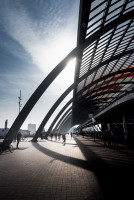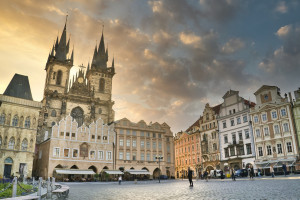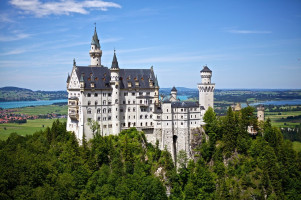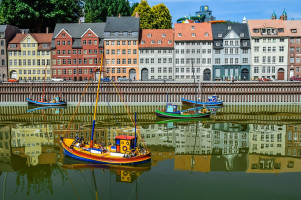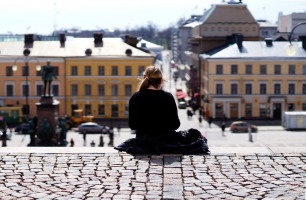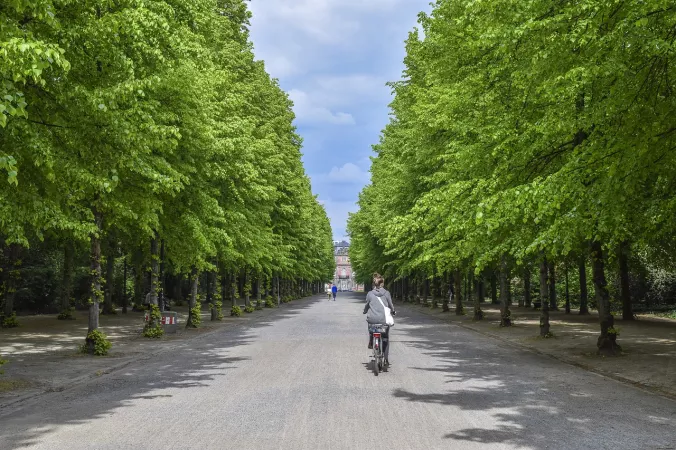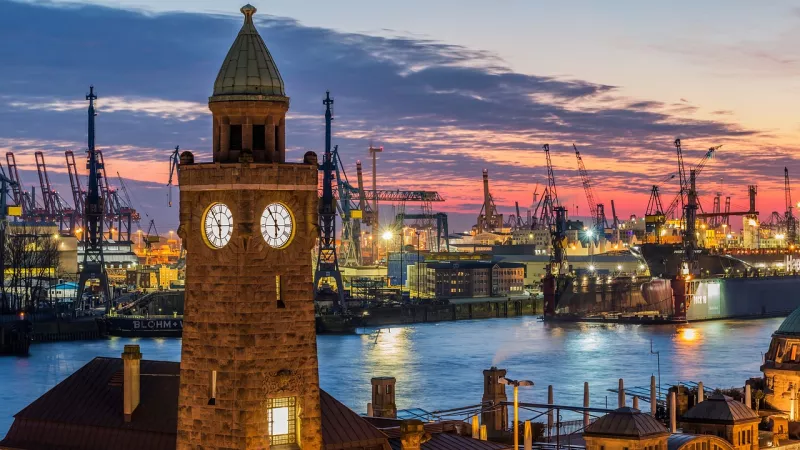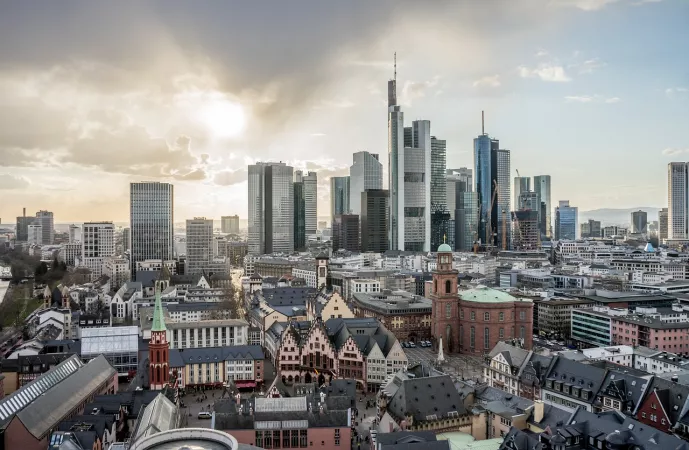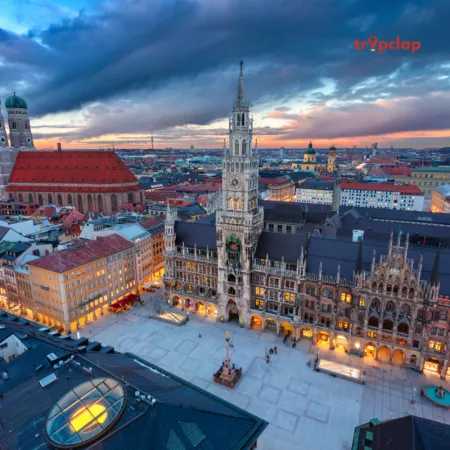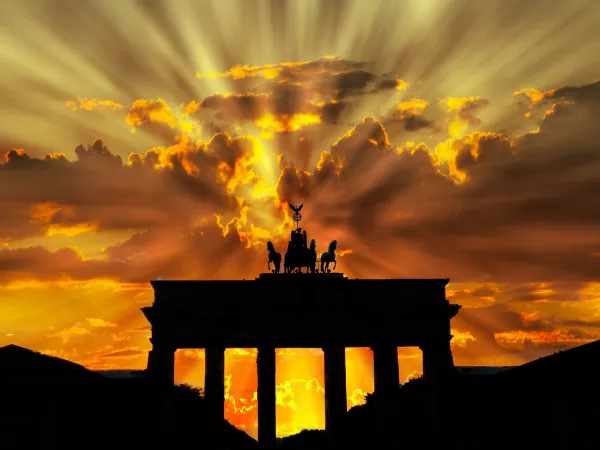
Berlin Travel Guide
Berlin, the capital of Germany, is a city rich in history, culture, and innovation. Known for its vibrant arts scene, historical landmarks, and trendy neighborhoods, Berlin is a melting pot of creativity and diversity. The city's turbulent past, including the Berlin Wall and World War II, has shaped its identity and made it a symbol of resilience and unity.Top Attractions in Berlin
1. Brandenburg Gate 2. Berlin Wall Memorial 3. Museum Island 4. Reichstag Building 5. Checkpoint Charlie 6. East Side Gallery 7. Tiergarten Park 8. Pergamon MuseumBerlin is Famous for
Berlin is famous for its vibrant nightlife, historical significance, and cultural diversity.Top Attractions in Berlin
- Brandenburg Gate - Berlin Wall Memorial - Museum Island - Reichstag Building - Checkpoint Charlie - East Side Gallery - Tiergarten Park - Pergamon MuseumWhat's Great about Travelling to Berlin?
- Rich history and culture - Vibrant arts and music scene - Diverse dining options - Trendy neighborhoods - Excellent public transportationWhat's Not So Great about Travelling to Berlin?
- Crowded tourist attractions - Unpredictable weather - Language barrier for non-German speakers - Limited parking options - Pickpocketing in tourist areasTravel Tips for Berlin
- Check visa requirements before travel - Use public transportation for easy navigation - Keep valuables secure in crowded areas - Respect local customs and traditions - Stay aware of your surroundings, especially at nightImportant Berlin trip information
- Ideal Duration: A week is ideal to explore the city and its attractions.
- Best Time to Visit: The best time to visit Berlin is during the summer months from June to August.
- Nearby Airports and Railway Stations: Berlin Tegel Airport and Berlin Hauptbahnhof are the main transportation hubs in the city.
Top 25 Places to visit in Berlin
Per Person
56,000
*EXCLUDING APPLICABLE TAXES 5.0 Ratings
( 32 Reviews )
( 32 Reviews )
Per Person
39,873
*EXCLUDING APPLICABLE TAXES 5.0 Ratings
( 393 Reviews )
( 393 Reviews )
Per Person
65,986
*EXCLUDING APPLICABLE TAXES 5.0 Ratings
( 393 Reviews )
( 393 Reviews )
Per Person
1,07,539
*EXCLUDING APPLICABLE TAXES 5.0 Ratings
( 393 Reviews )
( 393 Reviews )
Per Person
57,648
*EXCLUDING APPLICABLE TAXES 5.0 Ratings
( 393 Reviews )
( 393 Reviews )
Per Person
1,08,089
*EXCLUDING APPLICABLE TAXES 5.0 Ratings
( 393 Reviews )
( 393 Reviews )
FAQ's on Berlin
Q1: What is the best time to visit Berlin?
The best time to visit Berlin is during the late spring to early autumn months (May to September) when the weather is pleasant for exploring the city on foot. Summer is popular for outdoor events, festivals, and al fresco dining. However, if you prefer fewer crowds and lower prices, consider visiting in the shoulder seasons of spring and fall. Winter can be magical with Christmas markets, but be prepared for cold temperatures.
Q2: Do I need a visa to travel to Berlin?
Most travelers from the US, Canada, Australia, and EU countries do not need a visa for stays up to 90 days within a 180-day period. However, it's essential to check specific visa requirements based on your nationality before traveling to Berlin. Make sure your passport is valid for at least six months beyond your intended stay.
Q3: What are the must-visit attractions in Berlin?
Berlin offers a wealth of attractions, including the historic Brandenburg Gate, the Berlin Wall Memorial, Museum Island, the Reichstag Building, and the vibrant street art scene in East Side Gallery. Don't miss exploring the trendy neighborhoods like Kreuzberg and Prenzlauer Berg, as well as the iconic Checkpoint Charlie. Visit the Berlin Zoo, Tiergarten Park, and the bustling Alexanderplatz square for a taste of the city's diverse offerings.
Q4: Is Berlin a safe place to travel?
Berlin is generally a safe city for travelers, but like any metropolitan area, it's essential to remain vigilant against pickpocketing in crowded areas and be cautious at night, especially in certain neighborhoods. Avoid demonstrations, respect local laws, and keep an eye on your belongings. Emergency services are efficient in Berlin, and the city has a well-developed public transport network that is safe to use.
Q5: What is the local currency in Berlin and can I use credit cards?
The local currency in Berlin is the Euro (€). Credit cards are widely accepted in hotels, restaurants, and shops, but it's always advisable to carry some cash for smaller purchases and transactions. ATMs are readily available throughout the city, making it convenient to withdraw cash when needed. Be aware of any foreign transaction fees that your bank may charge for card usage abroad.
Q6: What is the local cuisine like in Berlin?
Berlin's culinary scene is diverse, offering traditional German dishes like currywurst, schnitzel, and pretzels, as well as international cuisine due to its multicultural population. Don't miss trying the local street food specialties at food markets like Markthalle Neun and sampling the famous Berliner Pfannkuchen (jelly-filled doughnuts). Vegetarian and vegan options are also plentiful in the city, with many restaurants catering to different dietary preferences. Explore the beer gardens for a taste of German beer culture and indulge in decadent pastries at the historic cafes.
Q7: What transportation options are available in Berlin?
Berlin has an excellent public transportation system, including buses, trams, U-Bahn (subway), and S-Bahn (commuter trains), making it easy to navigate the city. The Berlin WelcomeCard offers unlimited travel on public transport and discounts to popular attractions. Taxis are also readily available, but they can be more expensive compared to public transport. Bike rentals are a popular option for exploring the city at a leisurely pace, with dedicated bike lanes in many areas. Car rentals are available for those wanting to venture outside the city, but parking can be challenging in central Berlin.
Q8: Are there any cultural norms or etiquette I should be aware of when visiting Berlin?
When visiting Berlin, it's essential to greet people with a handshake and maintain eye contact during conversations. Germans value punctuality, so arrive on time for appointments and tours. Tipping is customary in restaurants, with 5-10% of the bill considered appropriate. Public nudity is more accepted in certain areas like parks and saunas, but it's essential to adhere to clothing norms in other public spaces. Avoid jaywalking, as Germans typically wait for the pedestrian signal to cross the street. Respect the local customs, such as recycling and separating trash correctly, and be mindful of noise levels, especially in residential areas.
Q9: I am a travel agent. How can I buy travel leads of Berlin?
Register yourself as a travel agent at agents.tripclap.com and then you can buy travel leads to Berlin once your account is approved. For more details contact our support team at +91-8069186564 or support@tripclap.com
